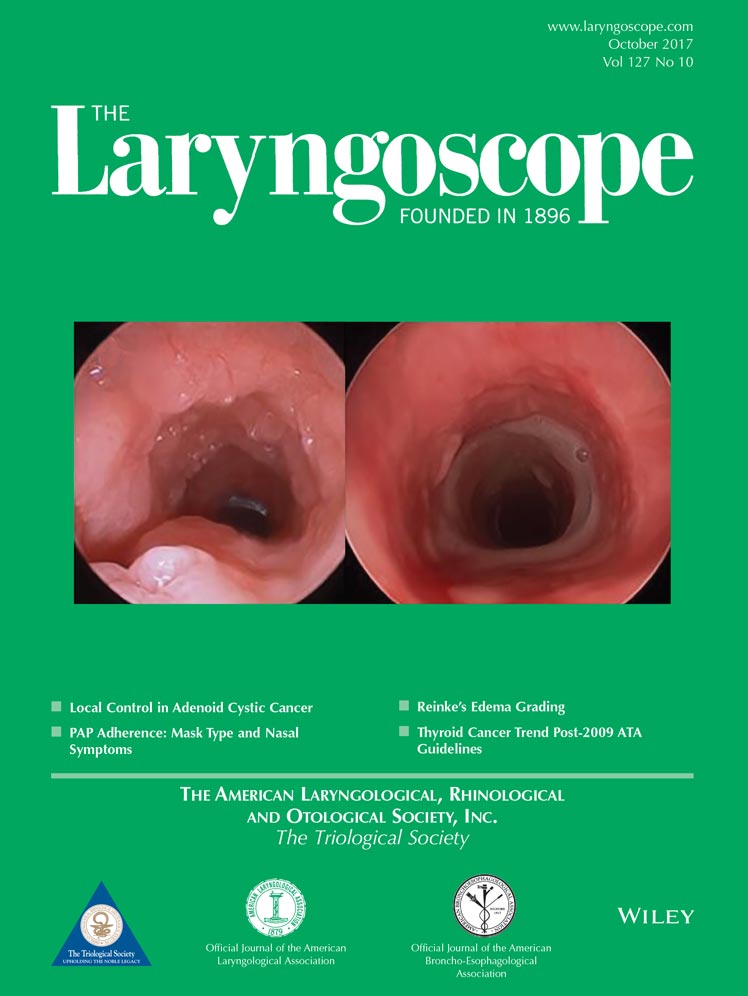Postoperative complications of total laryngectomy in diabetic patients
The authors have no funding, financial relationships, or conflicts of interest to disclose.
Abstract
Objectives/Hypothesis
Analyze postoperative complications of total laryngectomies (TL) in patients with diabetes mellitus and apply these data toward preoperative management of diabetic patients undergoing TL.
Study Design
Retrospective analysis of surgical outcomes database
Methods
The American College of Surgeons National Surgical Quality Improvement Program database was queried for TL performed between 2005 and 2013. Comparison of demographics, preoperative comorbidities, and postoperative outcomes in a diabetic versus a nondiabetic cohort was conducted using SPSS software. Equal distribution of demographics and preoperative comorbidities was ensured between the diabetic and nondiabetic cohorts using a propensity-matching algorithm.
Results
Following propensity matching there were 495 TL patients included in this study. Among these, 110 (22.2%) were diabetic and 385 (77.8%) were nondiabetic. The only comorbidities associated with the diabetic cohort after matching were obesity, previous percutaneous coronary intervention, and hypertension. The rates of superficial surgical site infections were higher in the diabetic patient cohort (10.9% vs. 4.7%, P = .022). There were no significant differences in unplanned readmission (12.7% vs. 9.1%, P = .260), reoperation (14.3% vs. 15.1%, P = .864), and mortality (1.8% vs. 2.6%, P = 1.000) between the diabetic and the nondiabetic groups. Multivariate regression utilizing preoperative variables not accounted for by propensity matching showed that superficial surgical site infections were still higher in the diabetes cohort (odds ratio: 3.371, P = .021).
Conclusions
Diabetic patients undergoing TL showed an increased incidence of superficial surgical site infections postoperatively. There were no other significant differences in readmission, reoperation, and mortality.
Level of Evidence
4 Laryngoscope, 127:2247–2251, 2017




